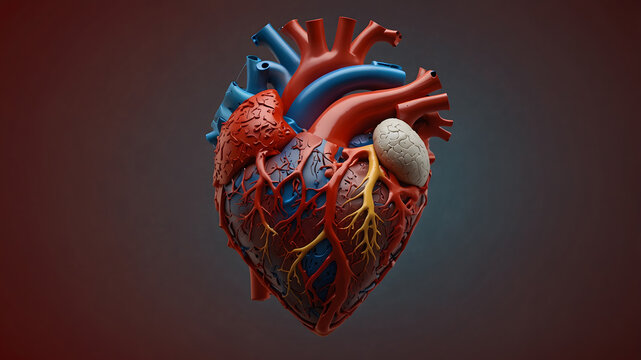Understanding Atrial Fibrillation (AF)
Atrial fibrillation (AF) is a common type of arrhythmia characterized by an irregular and often rapid heart rhythm that causes the upper chambers of the heart (atria) to quiver or twitch. This irregular rhythm can lead to various symptoms and increase the risk of certain health complications.
How Atrial Fibrillation Affects the Heart
In a healthy heart, electrical impulses move through the atria and ventricles in a coordinated manner, causing the heart to beat regularly. In atrial fibrillation, these electrical signals become chaotic, causing the atria to fibrillate (quiver) instead of contracting effectively. This disrupts the regular rhythm of the heart, potentially causing it to beat too fast or irregularly.
Risks Associated with Atrial Fibrillation
While atrial fibrillation itself may not be life-threatening, it can lead to more serious conditions if left untreated. Key risks include:
- Blood Clots: The irregular motion of the atria can cause blood to pool, increasing the risk of clot formation. If a clot travels to the brain, it can cause a stroke.
- Stroke: People with atrial fibrillation are at increased risk of stroke, with the risk varying based on factors such as age, high blood pressure, heart failure, diabetes, and previous history of blood clots.
- Heart Failure: Long-term, uncontrolled atrial fibrillation can lead to heart failure due to the heart’s inability to pump blood efficiently.
Symptoms of Atrial Fibrillation
Some people with atrial fibrillation may not experience noticeable symptoms, and the condition may only be detected during routine medical checks. When symptoms do occur, they may include:
- Palpitations: Awareness of a pounding, fluttering, or irregular heartbeat.
- Fatigue: Persistent tiredness or lack of energy.
- Breathlessness: Shortness of breath, even during minimal activity.
- Dizziness or Faintness: Feeling lightheaded or faint.
- Chest Discomfort or Pain: Pressure, tightness, or discomfort in the chest.
- Rapid Heartbeat: Feeling like the heart is beating faster than normal.
Emergency Warning Signs: If you or someone else experiences heart palpitations accompanied by dizziness, sudden shortness of breath, chest pain, or loss of consciousness, call emergency services immediately.
Types of Atrial Fibrillation
Atrial fibrillation can be categorized based on its frequency and duration:
- Paroxysmal AF: Episodes that come and go, lasting from a few minutes to hours, and may stop on their own.
- Persistent AF: Episodes that last longer than seven days and may require treatment to revert to normal rhythm.
- Long-term Persistent AF: Continuous atrial fibrillation lasting more than a year.
- Permanent AF: The condition does not go away and often requires ongoing management.
Diagnosing Atrial Fibrillation
AF can be diagnosed through various tests and assessments:
- Pulse Check: Simple check of pulse for irregularity.
- Electrocardiogram (ECG): A detailed recording of the heart’s rhythm.
- Ambulatory ECG Monitoring: Portable device recording the heart rhythm over 24 hours or longer, useful for detecting intermittent AF.
- Echocardiogram: An ultrasound scan of the heart to check for structural abnormalities or underlying causes.
Treatment Options for Atrial Fibrillation
Treatment for atrial fibrillation aims to prevent blood clots, control the heart rate, and restore a normal rhythm. Treatment may include:
- Anticoagulants (Blood Thinners): To reduce the risk of stroke by preventing blood clot formation.
- Medications: Such as beta blockers or anti-arrhythmic drugs to control heart rate and rhythm.
- Ablation Therapy: A procedure to destroy the areas of the heart causing the abnormal rhythm.
- Pacemaker: A device implanted to regulate the heart rhythm in certain cases.
- Cardioversion: An electrical procedure to reset the heart’s rhythm to normal.
Managing Atrial Fibrillation
Lifestyle changes, including a heart-healthy diet, regular exercise, managing stress, avoiding excessive alcohol, and stopping smoking, can help manage atrial fibrillation and reduce the risk of complications. It is important to work closely with healthcare professionals to determine the best treatment approach based on individual needs and risk factors.







